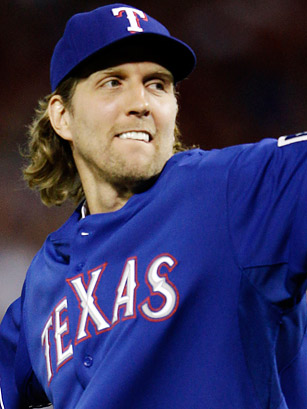
Long dismissed by critics as a soft scoring machine incapable of the gritty play necessary to go the distance, Dirk Nowitzki was a hero this year for all sports fans who hated the Miami Heat and LeBron James. In Game 2 of the NBA Finals between Nowitzki's Dallas Mavericks and the Heat, whose Big Three (Dwyane Wade and 2010 free agent signees James and Chris Bosh) might be the most despised trio in all of pro sports, the Mavericks trailed by 15 points with a little over six minutes remaining. But Nowitzki, who had missed 11 of his first 17 shots and played with a splint in the middle finger of his left hand, made four of his last five shots, including a spinning layup with three seconds left to give the Mavericks a stunning 95-93 victory. A week later in Game 6, with Dallas up 3-2 in the series, Nowitzki shot 1 for 12 in the first half. But he finished the game with 21 points in Dallas' 105-95 series-clinching win. With 1.2 seconds left in the game, an emotional Nowitzki ran back to the locker-room for a quiet moment. Throughout his career, the pioneering European player had been labeled as a choker and underachiever. Now the title was his, and his teammates convinced him to come back onto the court to accept the Finals MVP trophy.